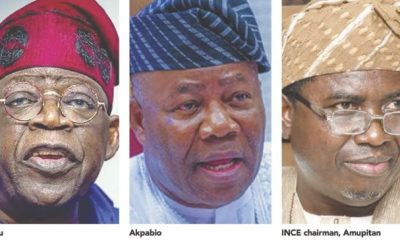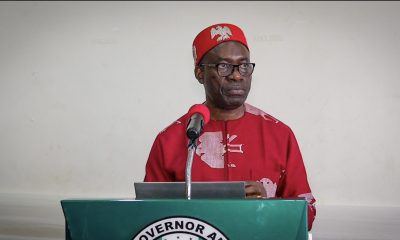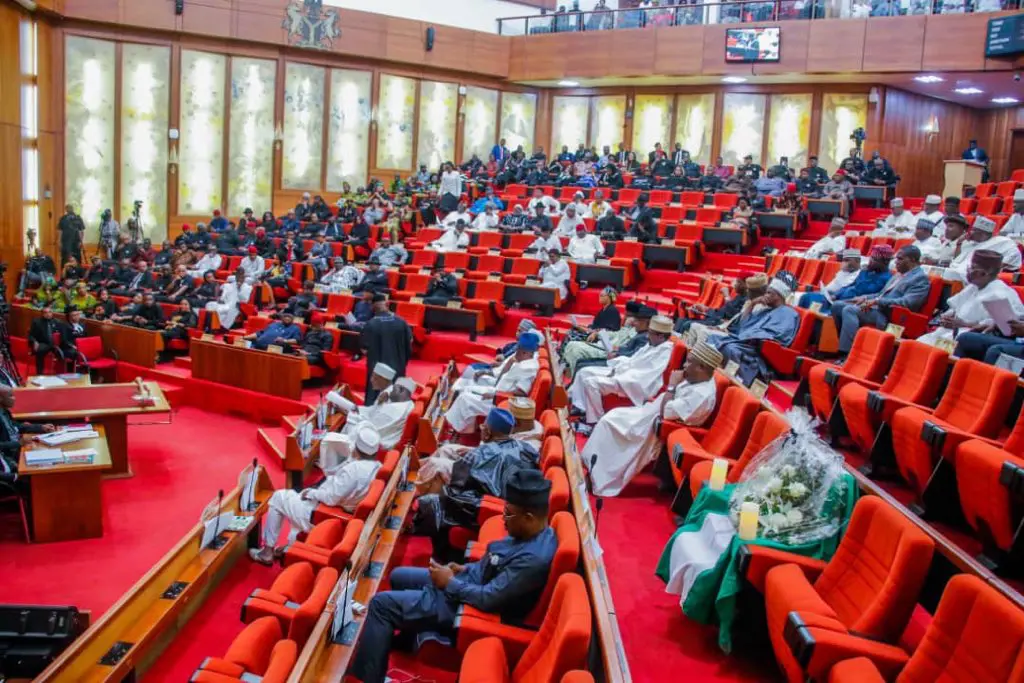The Nigerian Senate has approved President Bola Tinubu’s $2.2 billion loan request to partially address the N9.7 trillion budget deficits for the 2024 fiscal year.
The decision, reached during Thursday’s plenary session, underscores the administration’s reliance on external borrowing to bolster its fiscal strategy.
The approval followed a report by the Chairman of the Senate Committee on Local and Foreign Debts, Senator Aliyu Wamakko.
Senate President Godswill Akpabio affirmed the loan as part of the administration’s external borrowing plan, outlined in the proposed budget framework.
“The Presidential request for $2.2 billion, equivalent to N1.77 trillion, is already enshrined in the external borrowing plan for the 2024 fiscal year,” Akpabio stated during plenary.
The Senate Committee was instructed to fast-track its review within 24 hours, a directive it successfully met.
Deputy Senate President Jibrin Barau praised the committee’s diligence, adding that the expedited approval demonstrated the Senate’s commitment to supporting fiscal policies aimed at stabilizing the economy.
READ ALSO: PDP chieftain accuses Tinubu of fueling crisis in opposition party
The loan, sourced from foreign creditors, is set to complement domestic revenues and spending cuts in addressing the fiscal gap, but the approval process raised concerns about legislative scrutiny and fiscal sustainability.
Financial analysts have expressed mixed reactions to the Senate’s decision. Dr. Olusegun Adebayo, a Lagos-based economist, cautioned against the increasing reliance on external borrowing.
“Nigeria’s debt profile is already concerning. While the loan may provide short-term relief, it adds to the burden of servicing external debt, which consumes a significant portion of national revenue.”
On the other hand, Professor Maryam Idris, a public finance expert at Ahmadu Bello University, highlighted the potential benefits of strategic borrowing.
“If effectively utilized, this loan can support critical infrastructure and social programs that drive economic recovery and growth. However, transparency in fund allocation and use is crucial,” she noted.
Critics argue that the approval process lacked adequate debate on long-term implications.
READ ALSO: Tinubu sacks Nnamdi Azikiwe University Governing Council, VC, Registrar
Nigeria’s public debt, which surpassed ₦87 trillion by mid-2024, has drawn scrutiny from international agencies and local stakeholders. The International Monetary Fund (IMF) recently urged Nigeria to focus on broadening its tax base and eliminating subsidies rather than relying heavily on external loans.
“This approval, while expedient, should not become the norm. Nigeria must strengthen revenue generation mechanisms to avoid over-dependence on loans,” warned financial consultant Adekunle Ojo.
President Tinubu has defended his administration’s borrowing strategy, emphasizing its alignment with his broader economic reform agenda, including the removal of fuel subsidies and foreign exchange policy adjustments.
However, the administration faces growing pressure to ensure fiscal prudence and tangible outcomes from borrowed funds.
As Nigeria navigates these economic challenges, the Senate’s swift approval of the loan underscores the urgency of bridging budgetary gaps.
Whether this decision delivers the intended outcomes or exacerbates fiscal strain remains a critical question for policymakers and citizens alike.

 Comments and Issues1 week ago
Comments and Issues1 week ago
 Comments and Issues1 week ago
Comments and Issues1 week ago
 Comments and Issues7 days ago
Comments and Issues7 days ago
 Health6 days ago
Health6 days ago
 Comments and Issues1 week ago
Comments and Issues1 week ago
 Education1 week ago
Education1 week ago
 Football6 days ago
Football6 days ago
 News3 days ago
News3 days ago

